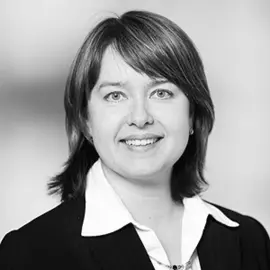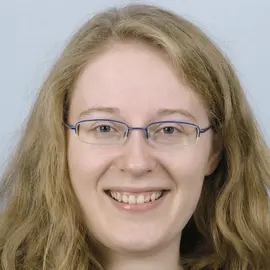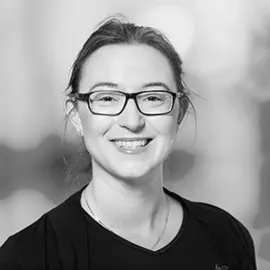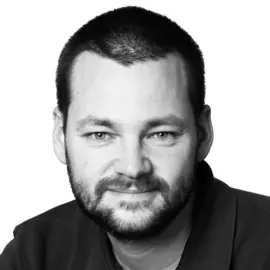Research Centre for Digital Labs & Production
The Research Centre for Digital Labs & Production connects people, spaces and processes in the life sciences. From mixed-reality digital twins via progressive web applications to machine-to-machine interfaces, we connect physical and digital worlds through data and analytics.
About us
The centre combines specific methodological and technological expertise in the digitization and virtualization of laboratories, processes and production facilities in the life sciences. This includes, on the one hand, the networking of devices, processes and people using interfaces, data pipelines and data management and, on the other hand, the mapping of physical systems and infrastructures to models and simulation environments. Digital twins are a good example of how these topics interact.
Three research groups are active in this field.
Simulation & Optimization
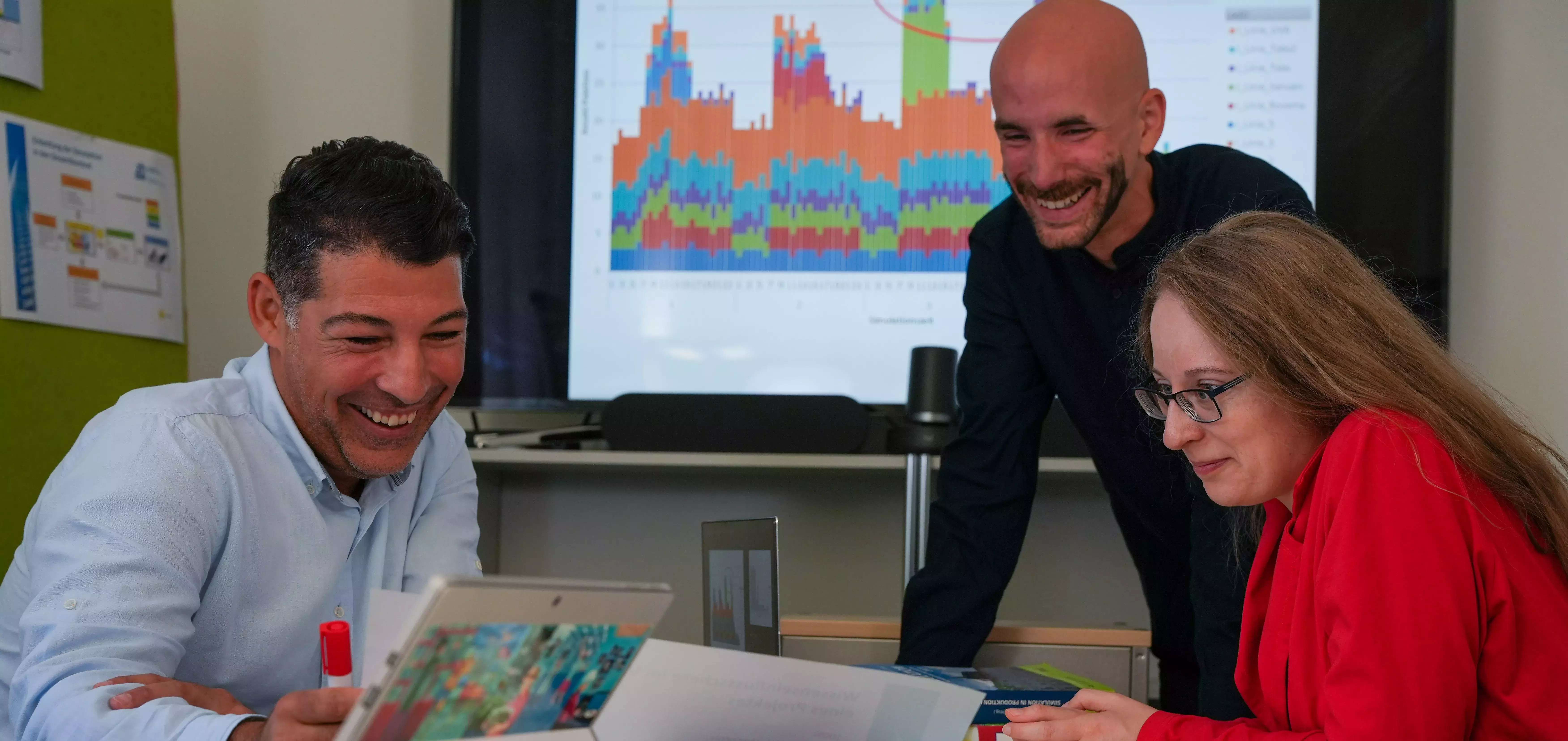
Strategic, tactical and operational process optimization using modelling and simulation tools are the focus of the research group. This includes the modelling and simulation of the dynamics of heterogeneous, complex systems as well as the investigation, optimization and control of their behaviour.
Group leader: Prof. Dr. Lukas Hollenstein | Learn more about the research group Simulation & Optimization
Data Management & Visualization

The research group specializes in the development of systems for data aggregation, transformation and management. Processing pipelines are designed and implemented to take data from their sources (e.g. graphic user interfaces, wearable sensors, measuring probes) through preparation steps (incl. quality control and homogenization) to storage solutions, analysis and visualization of results and insights.
Group leader: Dr. Robert Vorburger | Learn more about the research group Data Management & Visualization
Edge Computing & Interfaces
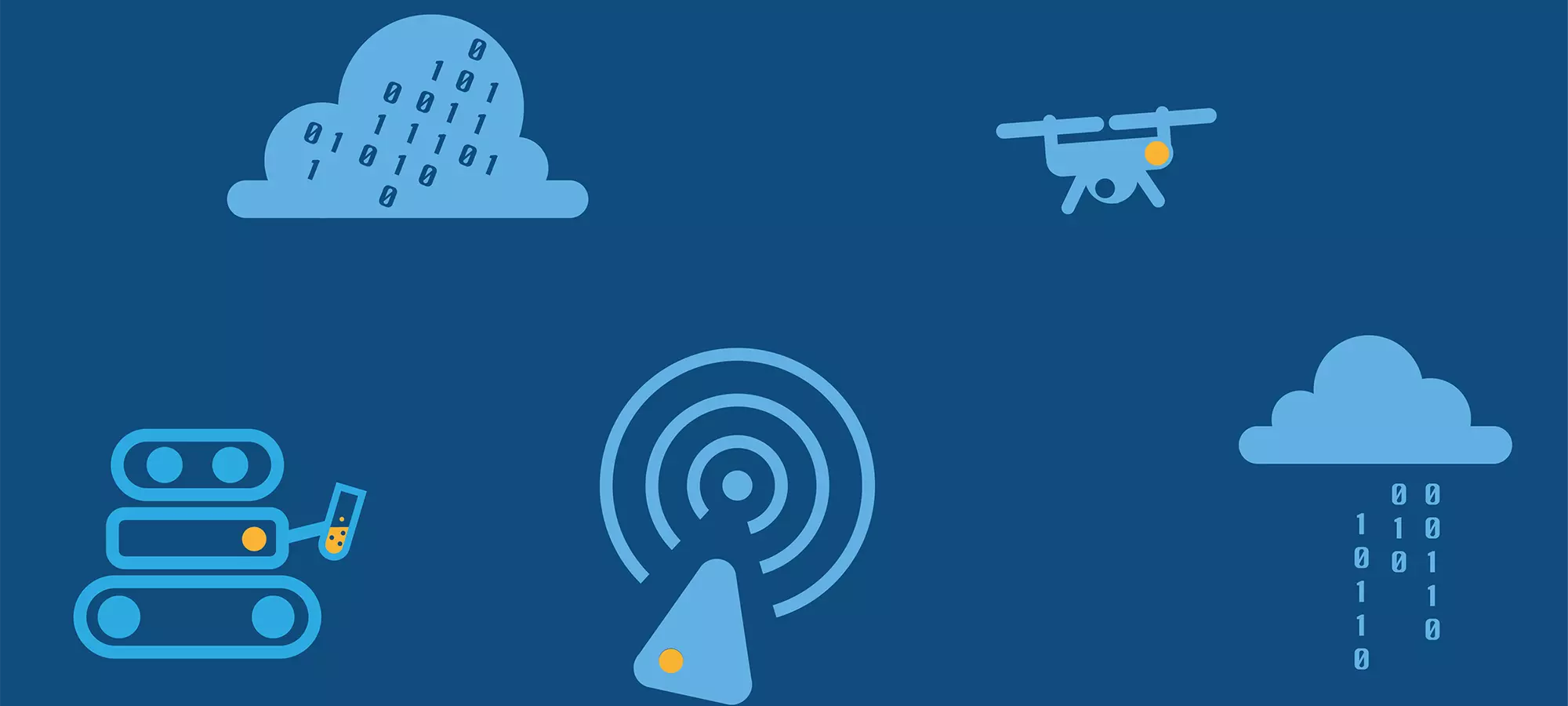
The research group combines dynamic physical structures with digital environments using sensor, actuators, and edge computing. The group supports automation and decentralized intelligent data processing in the life sciences by connecting people, machines, and contexts.
Group leader: Dr. Christian Glahn
Teaching Activites
The centre offers courses at BSc and MSc level in the fundamentals of data science, in mathematical and physical modelling (with a focus on simulation-based process optimization), in data management (with a focus on database technologies and visualization), and in physical computing (sensors and actuators) as well as cloud and edge computing.
The specialization Digital Labs & Production of the BSc ADLS is coordinated by this centre and corresponding Bachelor and Master theses are offered.
- Bachelor of Science (ZHAW) in Applied Computational Life Sciences
- Master of Science in Life Sciences - Specialisation Applied Computational Life Sciences
In addition, the centre is involved in programs and activities in the field of science education beyond the university level and offers continuing education courses.
Projects
-
Dynamik Knowledge Platform
-
Predicitve Waste Management for SBB Train Stations
We develop a system to optimize the waste collection and disposal on SBB's train stations. The new system will use a container fill level sensor network, a novel waste accumulation forecasting algorithm, and state of the art methods for simulation-based tour-planning.
-
Cocoa in Numbers – from data to knowledge
Nowadays consumers of cocoa and chocolate products are not only interested in safe high-quality products but also in products which are sustainable and produced under fair ecological and social conditions. The demand for transparency of information on the condition of cultivation, production and trade as well as on ...
-
Development of a web-based food frequency questionnaire
The aim of this study is to develop a web-based food frequency questionnaire (eFFQ-CH), using the menuCH photo book and the framework of a food frequency questionnaire developed at ZHAW Wädenswil (the ZHAW FFQ). The development work will follow a unique approach based on the results of the menuCH Survey, the first ...
-
Data-driven decision support for intracranial aneurysms and hospital catering using Bayesian networks
Clinical decisions in medicine and management decisions in facility management are regularly made on the basis of little evidence or extrapolations and are also influenced by subjective and economic aspects. While data is generated exponentially in medicine due to increasing digitization, there is no framework for ...
Publications
-
Derman, Melih; Hollenstein, Lukas,
2024.
Reduktion potenzieller Schadensmengen entlang der Kakao-Supply-Chain.
Transfer.
2024(1), pp. 5.
Available from: https://doi.org/10.21256/zhaw-30613
-
Müller, Claudia; Zbinden, Erich; Beretta, Claudio; Baumer, Beatrice,
2024.
In:
61. Wissenschaftlicher Kongress der DGE, Kassel, Deutschland, 4.-6. März 2024.
-
Vorburger, Robert,
2023.
Gebietsüberwachung im Pflanzenschutz : das Surveillance Tool.
TRANSFER.
2023(1), pp. 4.
Available from: https://doi.org/10.21256/zhaw-29500
-
Rüegg, Ramona; Schmid, Tamara; Hollenstein, Lukas; Müller, Nadina,
2022.
Effect of particle characteristics and foaming parameters on resulting foam quality and stability.
LWT - Food Science and Technology.
167(113859).
Available from: https://doi.org/10.1016/j.lwt.2022.113859
-
Gerber, Nicole; Hollenstein, Lukas,
2022.
Wie die Digitalisierung den Food Service im Care Bereich erreicht.
Clinicum.
2022(4), pp. 79-80.
Available from: https://doi.org/10.21256/zhaw-25448




